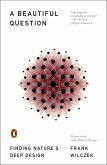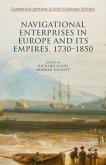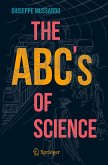Hans Blumenberg's History and Philosophy of Science
Herausgegeben:Fragio, Alberto; Ros Velasco, Josefa; Philippi, Martina; Borck, Cornelius
Hans Blumenberg's History and Philosophy of Science
Herausgegeben:Fragio, Alberto; Ros Velasco, Josefa; Philippi, Martina; Borck, Cornelius
- Gebundenes Buch
- Merkliste
- Auf die Merkliste
- Bewerten Bewerten
- Teilen
- Produkt teilen
- Produkterinnerung
- Produkterinnerung
This book highlights and develops a hitherto neglected area of Hans Blumenberg's contributions, i.e., history and philosophy of science. It covers both Blumenberg's works on the history of ideas and conceptual change, as well as his studies on transformative periods and his intellectual history of technology. Hans Blumenberg (1920-1996) was one of the leading German philosophers after the Second World War, bridging from the continental tradition of philosophy, conceptual history and metaphorology. This volume, though, explores the methodological instruments that he developed and how we may use…mehr
Andere Kunden interessierten sich auch für
![Explorations and False Trails Explorations and False Trails]() Jens HøyrupExplorations and False Trails35,99 €
Jens HøyrupExplorations and False Trails35,99 €![A Beautiful Question A Beautiful Question]() Frank WilczekA Beautiful Question11,99 €
Frank WilczekA Beautiful Question11,99 €![Navigational Enterprises in Europe and Its Empires, 1730-1850 Navigational Enterprises in Europe and Its Empires, 1730-1850]() Navigational Enterprises in Europe and Its Empires, 1730-185085,99 €
Navigational Enterprises in Europe and Its Empires, 1730-185085,99 €![History of Modern Mathematics History of Modern Mathematics]() David Eugene SmithHistory of Modern Mathematics14,90 €
David Eugene SmithHistory of Modern Mathematics14,90 €![The ABC's of Science The ABC's of Science]() Giuseppe MussardoThe ABC's of Science30,99 €
Giuseppe MussardoThe ABC's of Science30,99 €![Monographs in Tang Official Historiography Monographs in Tang Official Historiography]() Monographs in Tang Official Historiography100,99 €
Monographs in Tang Official Historiography100,99 €![Lakatos and the Historical Approach to Philosophy of Mathematics Lakatos and the Historical Approach to Philosophy of Mathematics]() Donald GilliesLakatos and the Historical Approach to Philosophy of Mathematics76,99 €
Donald GilliesLakatos and the Historical Approach to Philosophy of Mathematics76,99 €-
-
-
This book highlights and develops a hitherto neglected area of Hans Blumenberg's contributions, i.e., history and philosophy of science. It covers both Blumenberg's works on the history of ideas and conceptual change, as well as his studies on transformative periods and his intellectual history of technology. Hans Blumenberg (1920-1996) was one of the leading German philosophers after the Second World War, bridging from the continental tradition of philosophy, conceptual history and metaphorology. This volume, though, explores the methodological instruments that he developed and how we may use them to do history and philosophy of science. In doing so it opens up a new field of research and provides insight into further developing a continental history and philosophy of science, making this book of great interest to both historians and philosophers alike.
Produktdetails
- Produktdetails
- Studies in History and Philosophy of Science 63
- Verlag: Springer / Springer Nature Switzerland / Springer, Berlin
- Artikelnr. des Verlages: 978-3-031-78250-3
- Seitenzahl: 176
- Erscheinungstermin: 1. Februar 2025
- Englisch
- Abmessung: 241mm x 160mm x 16mm
- Gewicht: 379g
- ISBN-13: 9783031782503
- ISBN-10: 303178250X
- Artikelnr.: 71918205
- Herstellerkennzeichnung Die Herstellerinformationen sind derzeit nicht verfügbar.
- Studies in History and Philosophy of Science 63
- Verlag: Springer / Springer Nature Switzerland / Springer, Berlin
- Artikelnr. des Verlages: 978-3-031-78250-3
- Seitenzahl: 176
- Erscheinungstermin: 1. Februar 2025
- Englisch
- Abmessung: 241mm x 160mm x 16mm
- Gewicht: 379g
- ISBN-13: 9783031782503
- ISBN-10: 303178250X
- Artikelnr.: 71918205
- Herstellerkennzeichnung Die Herstellerinformationen sind derzeit nicht verfügbar.
Alberto Fragio Gistau Alberto Fragio is full professor in the Department of Humanities at the Universidad Autónoma Metropolitana de México, Unidad Cuajimalpa. He earned his Ph.D. in Philosophy (2007) from the Universidad Autónoma of Madrid (Spain), and in Cultural Science (2011) from Scuola Internazionale di Alti Studi di Modena (Italy). From 2007 to 2010 he undertook a dedicated research project on Hans Blumenberg's history and philosophy of science with the support of the Fondazione Collegio San Carlo (Italy). He has published Paradigmen zu einer Metaphorologie des Kosmos. Hans Blumenberg und die zeitgenössischen Metaphern des Universums (Nomos/Verlag Karl Alber, 2023). On this same author, he has co-edited Hans Blumenberg. Nuovi paradigmi d'analisi (Roma, 2010), and Metaphorologie, Anthropologie, Phänomenologie. Neue Forschungen zum Nachlass Hans Blumenbergs (Freiburg/München, 2019). Josefa Ros Velasco Josefa Ros Velasco is a Marie Sklodowska-Curie Actions postdoctoral researcher at the Complutense University of Madrid, where she is the PI of the project "Pre-bored. Well-being and prevention of boredom in Spanish nursing homes" (2021-2024). Previously, she was a postdoctoral researcher for the Postdoctoral Research Fellowships at Harvard University for Distinguished Junior Scholars program (2017-2021). She is a specialist in Boredom Studies from a multidisciplinary perspective, and the founder and president of the International Society of Boredom Studies. She is the author of the book The Disease of Boredom (Princeton University Press, 2025), and editor of books such as Suicide in Modern Literature (Springer, 2021) or Boredom Is in Your Mind (Springer, 2019). For her academic achievements, she received distinctions such as the Spanish National Research Prize 2022 or the Harvard University Lincoln Book Prize 2019, among others. Martina Philippi Martina Philippi did her Ph.D. in philosophy on Edmund Husserl's phenomenology. She worked at Leipzig University and Ruhr-University Bochum and is currently a postdoc researcher in the Collaborate Research Center "Constructing Explainability" (SFB/TRR 318) at Paderborn University. Her main topics are phenomenology and ethics of Artificial Intelligence and Digital Transformation. Book publications: Metaphorologie, Anthropologie, Phänomenologie. Neue Forschungen zum Nachlass Hans Blumenberg (together with Alberto Fragio and Josefa Ros Velasco, Alber Verlag, Freiburg/Br., 2020); Selbstverständlichkeit und Problematisierung. Husserls Programm der Phänomenologie (Fink Verlag, Paderborn, 2023). Cornelius Borck Cornelius Borck has been head of the Institute for the History of Medicine and Science Research at the University of Lübeck since 2007 and is spokesman for the Center for Cultural Studies Research there. After studying medicine, philosophy, religious studies and medical history in Hamburg, Heidelberg and Berlin, he was a Karl Schädler Fellow at the Max Planck Institute for the History of Science in Berlin from 1998 to 2001. From 2002 to 2004 he headed the research group "Writing Life. Media Technology and the Sciences of Life 1800-1900" at Bauhaus University Weimar, from 2004 to 2007 Professor and Canada Research Chair in Philosophy and Language of Medicine at McGill University in Montreal. His research interests include the contemporary history of medicine; brain research between media technology and neurophilosophy; human-machine relations in art and science; aesthetics and epistemology of the experiment. He is a member of the Academy of Sciences in Hamburg and was editor of the Berichte zur Wissenschaftsgeschichte from 2008 to 2018.
An Introduction to Hans Blumenberg's History and Philosophy of Science.- Part I: A Philosophical History of Sciences.- Chapter 1. Hans Blumenberg's History of Astronomy: An Overview (Alberto Fragio).- Chapter 2. On Blumenberg's Mathematical Caves, or: How Did Blumenberg Read Wittgenstein's Remarks on the Philosophy of Mathematics? (Michael Friedman).- Part II: Phenomenology as Anthropology.- Chapter 3. Crisis and Restitution. Phenomenological Subjectivity as Root of Blumenberg's Description of Historical Change (Pedro García-Durán).- Chapter 4. Lifeworld and Historicity: The Fate of Phenomenology (José Luis Villacañas Berlanga).- Chapter 5. Defense of 'Expanded Reason' in Hans Blumenberg: The Case for the Science of Boredom (Josefa Ros Velasco).- Part III: Hans Blumenberg's History and Philosophy of Technology.- Chapter 6. Technique, Technology, and Theory. Blumenbergian Perspectives in Philosophy of Culture (Christine Blättler).- Chapter 7. Nobody's Driving. Reality and Technology According to Hans Blumenberg (Gonzalo Forsberg).- Chapter 8. Unburdening the World with 'Worlds on Demand.' A Time Capsule from the Legacy (Martina Philippi).
An Introduction to Hans Blumenberg's History and Philosophy of Science.- Part I: A Philosophical History of Sciences.- Chapter 1. Hans Blumenberg's History of Astronomy: An Overview (Alberto Fragio).- Chapter 2. On Blumenberg's Mathematical Caves, or: How Did Blumenberg Read Wittgenstein's Remarks on the Philosophy of Mathematics? (Michael Friedman).- Part II: Phenomenology as Anthropology.- Chapter 3. Crisis and Restitution. Phenomenological Subjectivity as Root of Blumenberg's Description of Historical Change (Pedro García-Durán).- Chapter 4. Lifeworld and Historicity: The Fate of Phenomenology (José Luis Villacañas Berlanga).- Chapter 5. Defense of 'Expanded Reason' in Hans Blumenberg: The Case for the Science of Boredom (Josefa Ros Velasco).- Part III: Hans Blumenberg's History and Philosophy of Technology.- Chapter 6. Technique, Technology, and Theory. Blumenbergian Perspectives in Philosophy of Culture (Christine Blättler).- Chapter 7. Nobody's Driving. Reality and Technology According to Hans Blumenberg (Gonzalo Forsberg).- Chapter 8. Unburdening the World with 'Worlds on Demand.' A Time Capsule from the Legacy (Martina Philippi).








